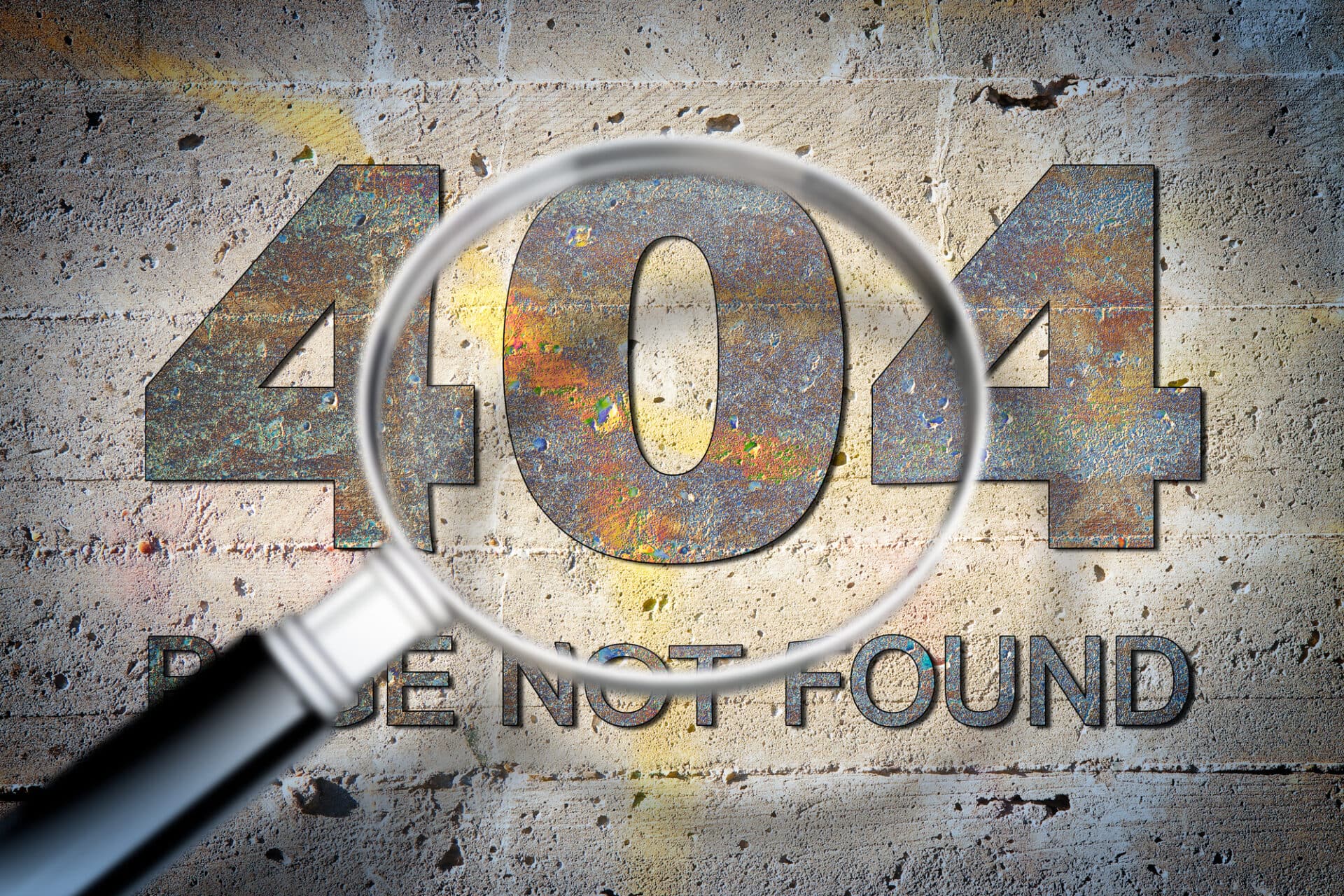If you have broken site links, it’s time to reclaim “link juice” and brush up on your website’s user experience.
Broken links, also known as dead links or link rots, are hyperlinks on a website that point to a web page that no longer exists on the Internet. These pages can be internal (other pages on your website) or external (pages on other websites).
If you have a website, you have probably put money and a lot of hard work into making it a valuable resource for your visitors. Broken links can derail all of that investment.
These reasons can be cited for broken links on your website:
 You mistyped the link. It happens more often than you’d think. Even an extra space at the end of the URL can cause a broken link.
You mistyped the link. It happens more often than you’d think. Even an extra space at the end of the URL can cause a broken link.- You ended up linking to the wrong URL.
- The destination website deleted or removed the page you’re linking to (causing what’s known as a 404 error).
- The destination website or web page permanently moved or is now defunct.
Why You Should Fix Broken Website Links Now
Whatever the reason, you must get them fixed as soon as possible. You don’t want broken links on your website for two main reasons.
1. Broken Website Links Impact User Experience
If your website is riddled with broken links, it will give site visitors the idea that your site is unprofessional or untended. Worse, it can imply that you or your business have a dubious reputation – very costly image problems that are hard to change once established.
Moreover, visitors who run into difficulties on a website are much less likely to go back for a return visit. This is almost equal to losing prospective clients.
Imagine that you were using Yellow Pages (remember what they were?) to find a business, and every other business you called was either closed or didn’t exist. You wouldn’t be thrilled if you couldn’t find what you were looking for. You would probably soon ditch the Yellow Pages.
Well, a website riddled with broken links is pretty much the same. Your users will be turned off because they won’t be able to access the desired resource or information, instead landing on the infamous “404 Error” page.
2. Broken Site Links Hurt Your Search Engine Optimization (SEO)
Google wants to defend its position as the number one search engine in the world by only giving people relevant, timely content. This means hyperlinks that work.
That is why Google penalizes every website that doesn’t address its broken outgoing links (both internal and external), thereby failing to comply with Google’s PageRank algorithm.
So, from a technical perspective, broken links can stop search engine robots dead in their tracks. It prevents them from fully mapping your website for submission to search engines.
Find and Fix Broken Links
With Internet users becoming more sophisticated, it takes greater effort to entice these users to visit your website. Fixing broken links on your website adds context to your site and makes your website content easier for visitors and search engines to discover.
Fortunately, finding and fixing broken links is an easy task. You can use one of the many online dead link checking tools (such as Dead Link Checker and Screaming Frog Link Checker) to catch sight of all broken links on your website. Once you have located all the broken links, you can either replace them with live links or remove them altogether.

 You mistyped the link. It happens more often than you’d think. Even an extra space at the end of the URL can cause a broken link.
You mistyped the link. It happens more often than you’d think. Even an extra space at the end of the URL can cause a broken link.

